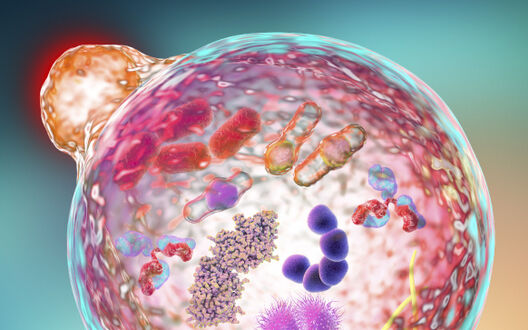Grantee in the News: David Walker Identifies Gene That May Slow Aging Process
On September 4, 2014, Cell Reports released research authored by 2009 AFAR Award recipient, David Walker, Ph.D., showing that activation of the gene AMPK in fruit flies increased average lifespan by 30%, from roughly 6 to 8 weeks.
AMPK, a gene that also exists in humans, is a key energy sensor in cells and is activated only when cellular energy is low. Once activated, AMPK helps to cleanse the cell of old and damaged cellular components. Dr. Walker’s team found that activating the gene in one organ, such as the easier to access intestines, also initiated AMPK in harder to reach nervous system cells.
This finding is significant because activation of the gene could help clear the build-up of protein aggregates associated with Alzheimer’s and Parkinson’s disease.
David Walker, Ph.D., is an Associate Professor in the Department of Integrated Biology and Physiology at the University of California, Los Angeles.
The fruit fly, used which was for Dr. Walker’s research, is a good model for studying aging in humans because scientists have identified all of the fruit fly’s genes and know how to switch individual genes on and off. Learn more about how animal models are utilized in biomedical studies on the process of aging here.











